Whether pursuing a career in oil and gas production is good or not depends on various factors, such as technological advancements and supply and demand.
Opportunities and progress in the oil companies are abundant and there are plenty of chances for growth, but it all depends on your skills, interests, and goals. Is oil and gas production a good career path?
To have a comprehensive view of the prospects of working in oil and gas production, its advantages and disadvantages, some promising and profitable positions and their requirements are discussed in this article.
Table of Contents
Oil and gas production- Career Opportunities
Over the years the production of gas and oil companies has witnessed growth and contraction, oil and gas production varies depending on various factors, such as technological advancements and regulatory changes, and supply and global oil demand.
Currently, there are several challenges faced by the industry like gas supply close and others impacting growth, and one of them is the rising concerns about climate change and a growing interest in the renewable energy sector.
However, the industry is expected to grow in many areas as well. As reported in a study commissioned by the American Petroleum Institute, 10.8 million jobs were supported by the industry in 2021, which made up 5.4% of the total employment in the U.S.
According to the U.S. Bureau of Labor Statistics, employment in the oil and gas production industry is expected to increase by 3% from 2020 to 2030.
Recommended Reading: See The Big Picture
There are various high-paying energy jobs offered by the oil and gas production industry, and getting a job in this industry may open doors to plenty of opportunities.
Here are some of the most in demand careers in the oil and gas production industry: -
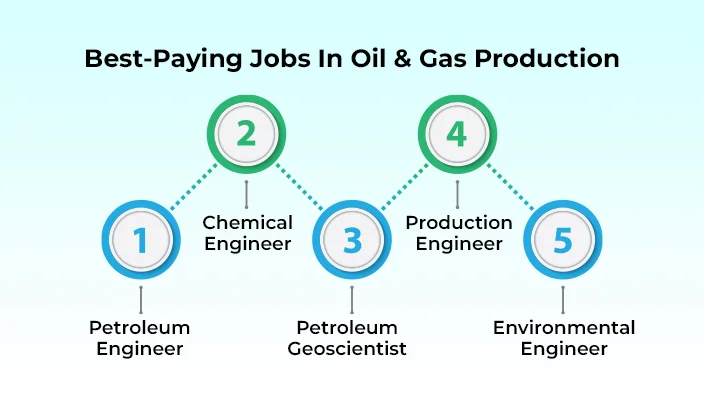
Petroleum Engineer
Petroleum engineers are highly skilled professionals responsible for developing and designing methods for extracting oil and natural gas from the reservoirs beneath the ground and on the earth’s surface.
An average annual salary for petroleum geologists may range from $100000 to $200000 depending on location, employer, and employees’ experience.
Petroleum engineers are required to have a four-year degree, generally, in engineering, and preferably in petroleum engineering.
Chemical Engineer
Chemical engineers in the oil and gas production industry are majorly entrusted to process samples taken from the field, certifying that the correct chemicals are being used to transform crude oil into a usable condition.
They also have the responsibility to propose solutions to drilling related environmental problems. A median salary for a chemical engineer can be around $106000. Chemical engineers must have a bachelor’s degree in chemical engineering.
Petroleum Geoscientist
Petroleum geoscientists search for oil and gas deposits suitable for commercial extraction.
Some of their duties are having visits to various locations across the world to gather samples, estimating the body of oil and gas reservoirs, and developing extraction of oil and gas on site.
Petroleum geoscientists must have a bachelor’s degree in geoscience. A degree in a related field, like physical science, could also work.
Production Engineer
 A production engineer oversees the routine operations of oil and gas extraction facilities and is responsible for making sure that the production is efficient and cost-effective.
A production engineer oversees the routine operations of oil and gas extraction facilities and is responsible for making sure that the production is efficient and cost-effective.
An average salary for a production engineer may be around $97,000 per annum, however salaries can vary in range, from $70,000 to over $150,000 depending on the location, employer, and experience of the worker.
Environmental Engineer
Environmental engineers in the oil and gas extraction industry have the responsibility to mitigate the environmental impact of the processing and extraction activities.
These engineers develop systems to assist in remedying or preventing any dangers to the environment and curtail the oil and gas industry’s carbon footprint. The average annual salary for an environmental engineer may be around $96000.
Entry - Level Jobs
There are various roles in the oil and gas field for those who don’t have that much experience and a higher level of education, as these gas careers or gas jobs demand little to no experience.
Here are a couple of examples of entry-level jobs in this field: -
Field Technician
Field technicians are required to be on oil and gas production sites for maintenance and repair tasks on machinery and equipment. They can also assist with production and drilling engineers.
For this role, a high school diploma is needed and on the job training is provided.
Production Operator
Production operators are responsible for monitoring and controlling the flow of oil and gas from extraction wells, optimizing extraction processes, and operating and maintaining equipment, such as compressors, valves, and pumps.
It also requires a high school diploma, and on-the-site training is provided.
Drilling Rig Operator
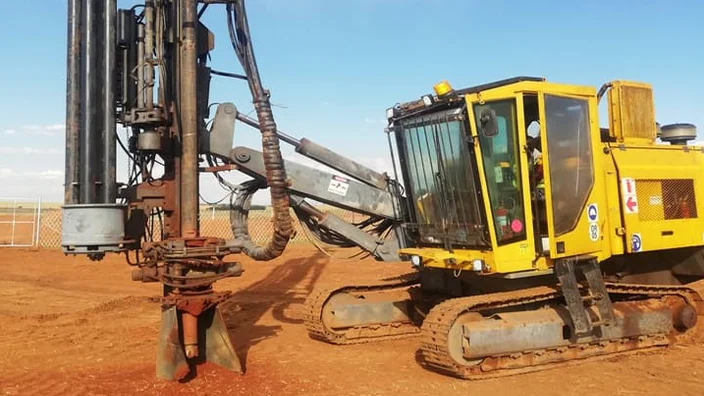 Drilling rig operators are responsible for operating drilling machinery to extract oil and gas from the reservoirs beneath the ground. To get a job as a drilling rig operator also requires a high school diploma, and on the job training is given.
Drilling rig operators are responsible for operating drilling machinery to extract oil and gas from the reservoirs beneath the ground. To get a job as a drilling rig operator also requires a high school diploma, and on the job training is given.
Roughneck
Roughnecks work on drilling rigs to help in drilling operations, such as operating drilling machines, doing maintenance tasks, and connecting and disconnecting drilling pipes. A high school diploma is needed for this role, the workers are provided on the job training.
Career Paths in Oil and Gas Production
Opportunities and progress in the oil and gas extraction industry are abundant and there are plenty of chances of steady growth, but it all depends on your skills, interests, and goals.
Here is a general overview of what directions a career path in the said industry can take: -
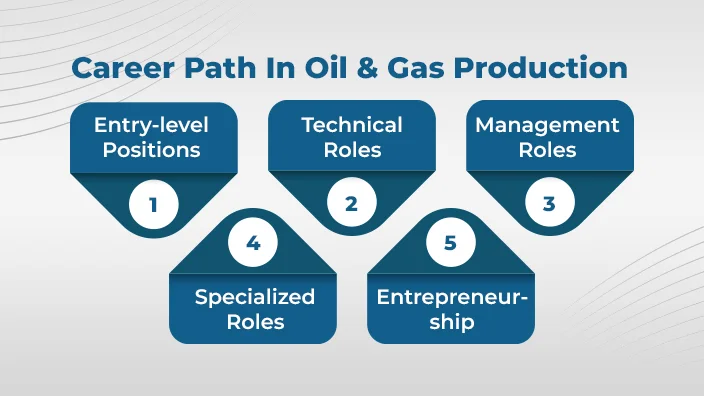
Entry-level Positions
A career in oil and gas production fulfills all the sectors, it can be started from the entry level, such as field technician, production operator, or drilling rig operator.
High school diplomas or equivalent education is required for these jobs and on the job training is given.
Technical Roles
As you learn skills and gain experience over time, you may be advanced to technical roles, such as production engineer, reservoir engineer or petroleum engineer.
These jobs in the industry require the workers to have bachelor’s degrees in engineering, and involve various roles, such as the development and implementation of production plans, designing and testing drilling equipment, or analyzing reservoirs.
Management Roles
Management roles, like drilling manager, production manager, or operations manager, involve overseeing the teams and production operations, and ensuring conformity to the regulatory requirements.
Specialized Roles
There are various specialized roles in the industry such as health and safety manager, environmental specialist, or project manager, that require specific knowledge and expertise.
Environmental specialists are responsible for environmental implications, environmental conservation, ensuring efficient resource recovery, and saving environmentally friendly energy sources.
Entrepreneurship
Taking a career path in oil and gas production can offer plentiful opportunities for advancement and progress, based on your skills and interests.
By pursuing further education, developing technical skills and expertise, and looking for new opportunities, you can construct a fulfilling and successful career transition in this field.
Pros and Cons
If you’re looking for a job in oil and gas production, it’s necessary to consider the advantages and disadvantages of working in oil and gas sector.

Pros
Career Advancement: Molly Determan, president of the Energy Workforce and Technology Council, said in an email that many oil and gas enterprises were massively investing in their workforce, often urging workers to learn new skills to drive uniqueness and innovation in the industry.
High Earning Potential: Certain roles in the oil and gas production industry, specifically those needing specialized skills and expertise such as geoscientists and petroleum engineers, offer lucrative and rewarding salaries and benefits packages.
Travel and International Job Opportunities: These job duties involve visiting across the states. If the opportunity to work on projects across the world and gain exposure to diverse cultures excites you, a career in oil and gas production could be beneficial.
Cons
A career in oil and gas production may come up with some disadvantages as well: -
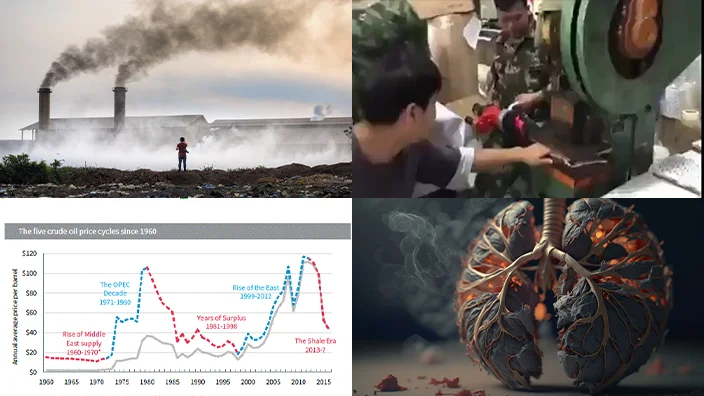 Environmental Concerns: Oil and gas extraction and processing activities can pose serious environmental concerns, as they contribute to pollution, lead to habitat disruption, and cause greenhouse gas emissions.
Environmental Concerns: Oil and gas extraction and processing activities can pose serious environmental concerns, as they contribute to pollution, lead to habitat disruption, and cause greenhouse gas emissions.
Risky Work Conditions: Having a career in oil and gas production means that you might have to work with hazardous chemicals, heavy machinery, and extremely weathers, that requires to be careful.
Rising environmental awareness, ethical and environmental implications, drilling-related environmental issues, and many others are necessary to be taken into consideration.
Lack of Stability: The oil and gas industry remains to be known for its unsteadiness and cyclical nature, which is influenced by various factors, such as fluctuations in oil prices and global economic conditions, that can result in cutbacks during a crisis or industry downturn.
Tips for Pursuing this Career
Here are various steps that you can take to have increased chances of being successful in getting a job.
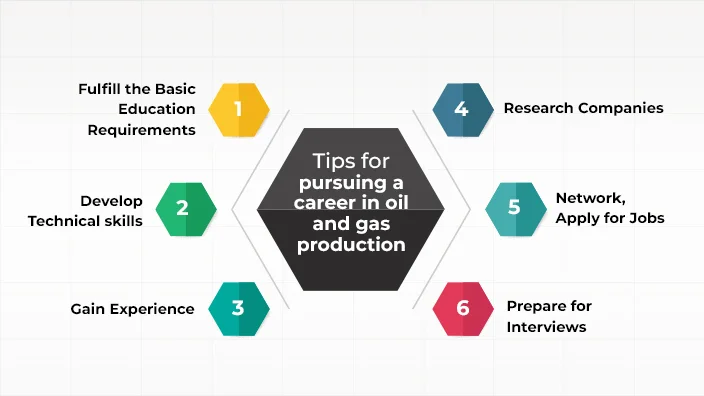 Basic Education Requirements: The first step to pursuing a career in the oil and gas production industry is fulfilling the basic education criteria. If you’re looking for an entry-level position, a high school diploma would be enough.
Basic Education Requirements: The first step to pursuing a career in the oil and gas production industry is fulfilling the basic education criteria. If you’re looking for an entry-level position, a high school diploma would be enough.
Develop Technical Skills: For numerous jobs in oil and gas production, the employees are required to have technical skills and specialized equipment. For this purpose, consider pursuing certifications or taking courses to build technical skills.
Gain Experience: Experience matters a lot when it comes to working in the oil and gas production sector.
When you apply for a job in this sector, having experience of working in the related fields, such as natural resources or engineering, can be a lot of benefit.
Research Companies: If you want to get a job in a company or enterprise that align with your interests and career goals, research oil and gas companies are the best fit for you.
Companies utilizing artificial intelligence are advanced and successful.
Network: Networking can help learn about job openings and connect with industry professionals, as companies often conduct seminars, conferences, and industry-related events.
Apply for Jobs: As you try applying for various roles of your interest, consider tailoring your cover letter and resume to the specific job and company, pronouncing your relevant experience, skills, and expertise.
Prepare for Interviews: How you look and perform interviews play a crucial role in winning you a job.
However, make yourself well prepared for the interview by researching the preferences, culture, and objectives of the company, practicing questions commonly asked in interviews, and being prepared and confident to discuss your skills and experience.
Jobs in Different Countries
Here are some regions that are top for oil and gas production jobs: -

- North America: The United States and Canada are among the major producers of oil and gas, with plenty of job opportunities available in exploration, extraction, and transportation.
- Russia and Central Asia: Russia also has a huge share, globally, in oil and gas production, and Central Asian countries, like Kazakhstan, are also among the major producers.
- Middle East: Middle Eastern countries, like Saudi Arabia, the United Arab Emirates, and Kuwait are rich in oil and gas.
- Africa: Africa also holds a lot of job opportunities in oil and gas production sector. Countries like Algeria, Angola, and Nigeria are among the major producers of oil and gas.
- South America: Last but not least, in the list are the regions of South America, such as Venezuela, Brazil, and Colombia, that offer plenty of jobs in the oil and gas production sector.
Conclusion
To sum it up, the oil and gas production industry holds a lot of opportunities and has more promising and fulfilling career paths, though the industry has been witnessing growth and contraction over time. Is oil and gas production a good career path?
However, those with relevant expertise, experience, and skills can reap much from certain positions in the industry, as it offers various roles such as production engineer, chemical engineer, petroleum engineer, petroleum geoscientist, etc. with promising salaries, with an average annual in six figures or even beyond.
However, pursuing a good career in oil and gas production and gaining success requires fulfilling educational requirements, gaining experience, and developing technical skills.
Frequently Asked Questions
The highest-paying job in oil and gas production can vary, but certain roles, such as production engineer, chemical engineer, petroleum engineer, petroleum geoscientist, etc.
Is oil gas transmission a good career path?
Oil and gas transmission can be a lucrative career path, as it involves transporting energy resources. However, it's important to consider market trends and job opportunities in the industry.
Does the oil and gas industry have a future?
The industry is looking pressed by a transition to renewable and more sustainable energy sources, driven by the growing demand that could affect future growth and job opportunities.
Do you make good money in the oil field?
Pursuing a career in the oil and gas industry promises profitability, especially the major roles, such as chemical engineer, petroleum engineer, petroleum geoscientist, etc. offer promising salaries.

















